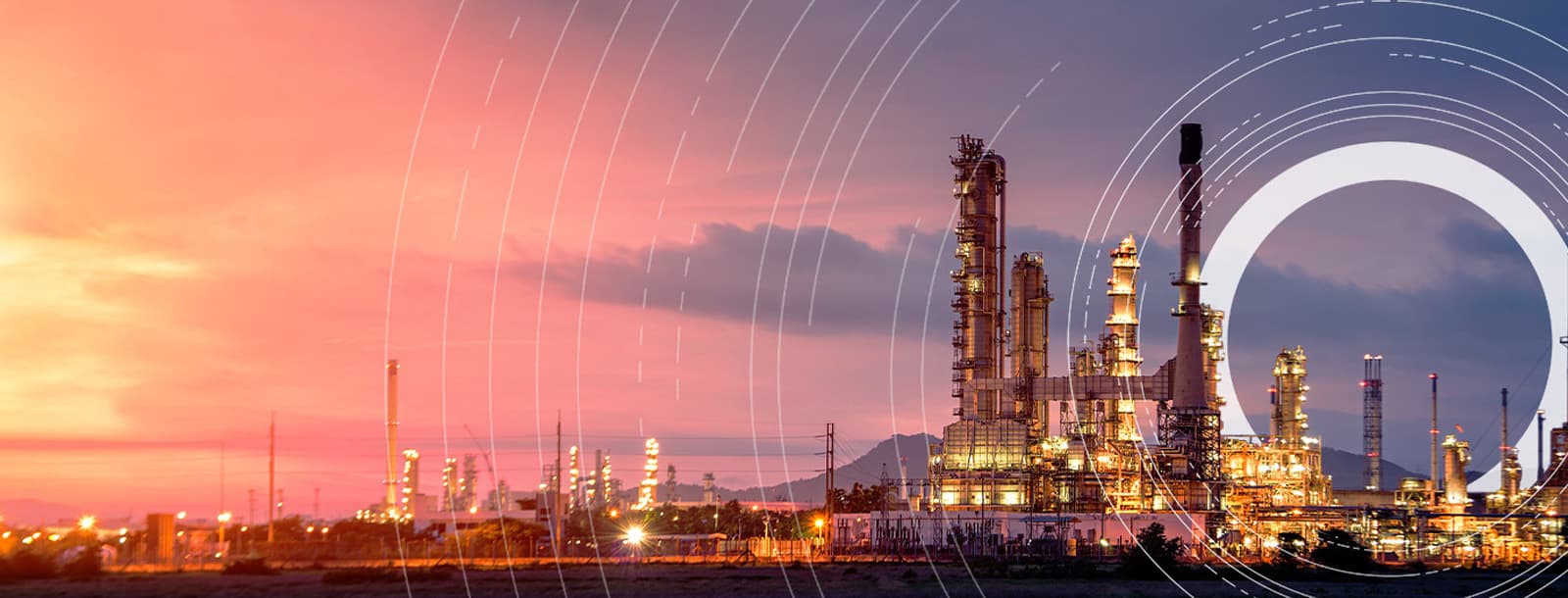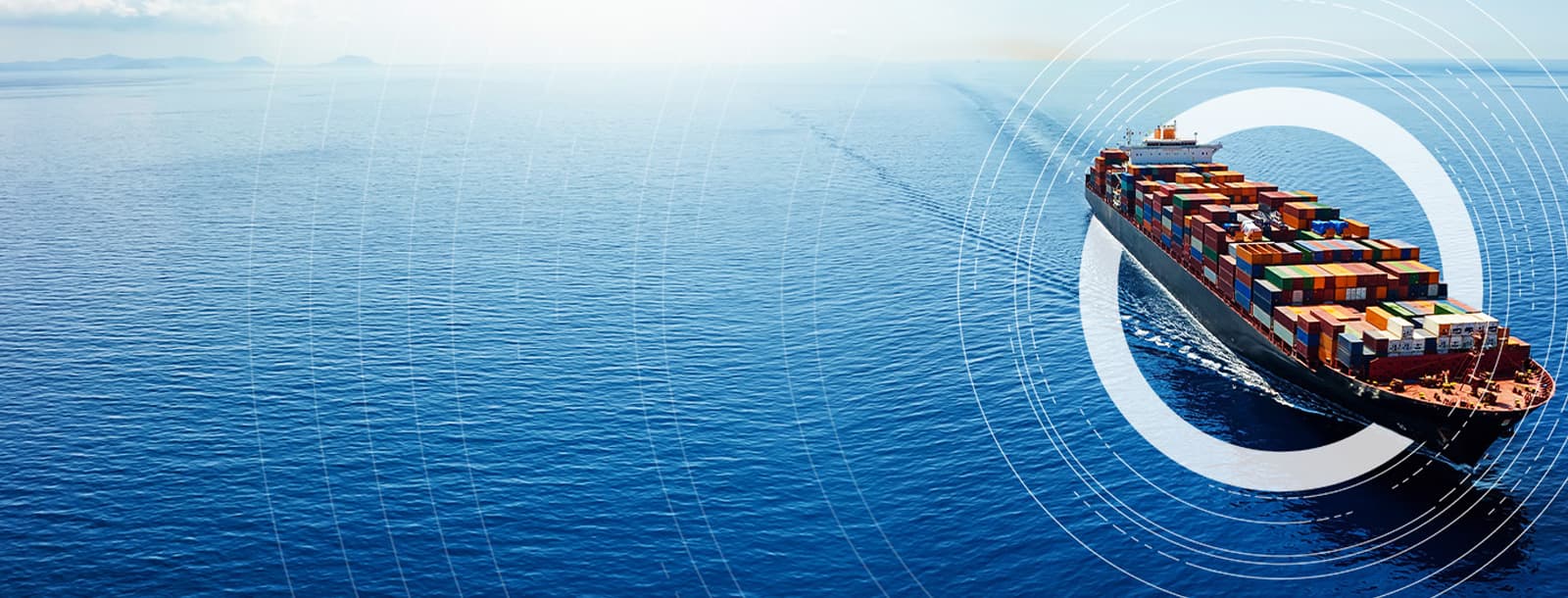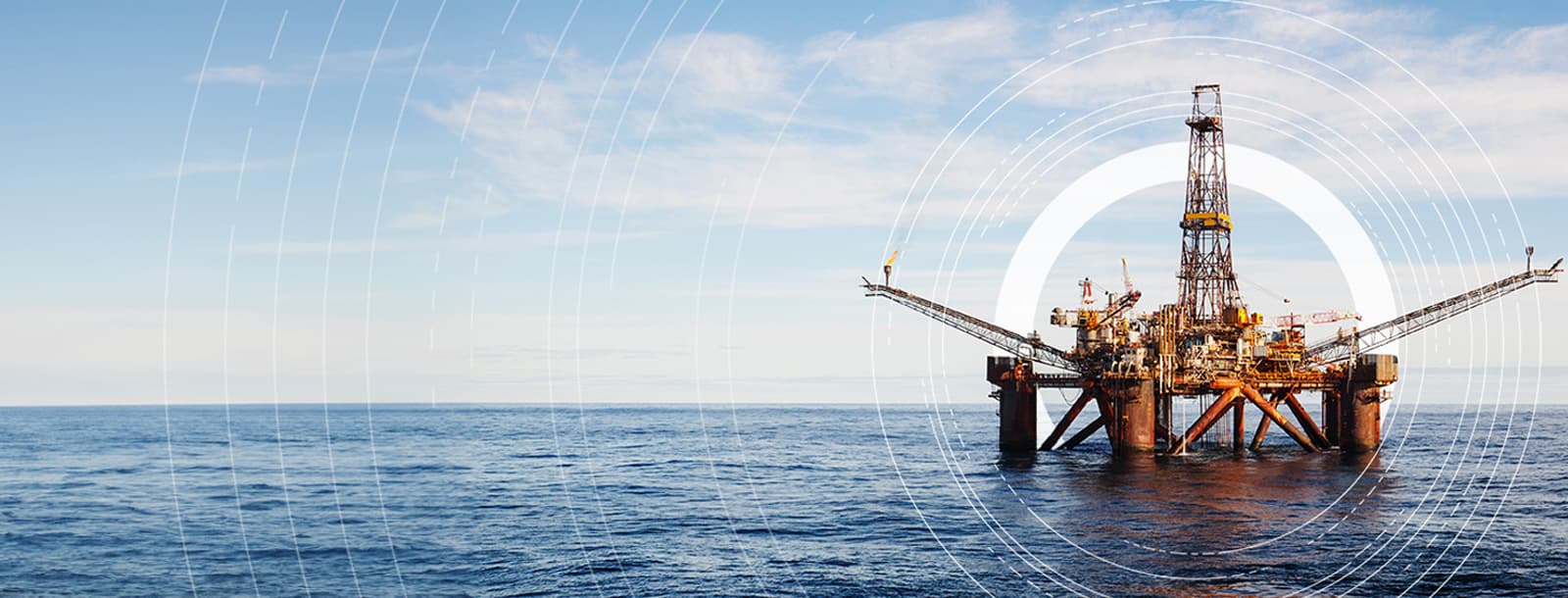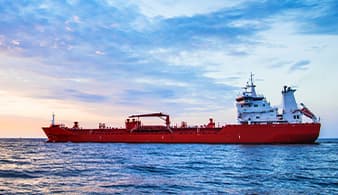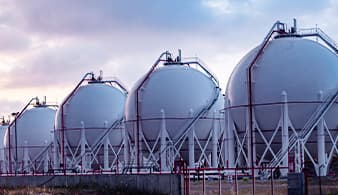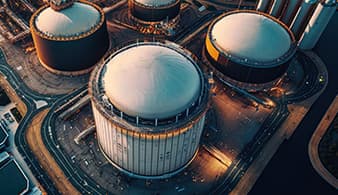Рынки
Argus всесторонне освещает товарно-сырьевые рынки, охватывая всю цепочку от добычи сырья до его переработки и конечного потребления.
Мы предоставляем актуальную аналитику, точные котировки, и организуем отраслевые конференции.
Актуальная рыночная информация
Наши международные эксперты по энергетическим и товарно-сырьевым рынкам информируют клиентов о событиях на энергетических и товарно-сырьевых рынках. Ознакомьтесь с последними текстовыми, аудио- и видеоматериалами Argus
Логистика сухих грузов - ЦО: готовим аналог Яндекс.Такси на рынке оперирования
Логистика сухих грузов - ЦО: готовим аналог Яндекс.Такси на рынке оперирования
Moscow, 10 December (Argus) — В начале ноября на рынке железнодорожных перевозок появился новый участник — Цифровой оператор (ЦО). О целях и задачах этой компании, а также о перспективах операторского рынка рассказал Argus генеральный директор ЦО Алексей Винников. — В ноябре вы возглавили ЦО. Каковы цели и задачи этого предприятия? — Если коротко, главная задача ЦО — повышение эффективности использования грузовых вагонов на сети РЖД с учетом оптимизации перевозочного процесса для снижения затрат операторов и грузоотправителей. Предпосылками к такому решению явилось то, что последние пять лет производительность подвижного состава неуклонно падала, в итоге увеличивался размер невостребованного парка, который и дальше продолжал расти с учетом закупок операторами новых вагонов. В результате общий парк достиг некой критической массы — около 1,4 млн единиц, когда текущие инфраструктурные мощности РЖД уже не в состоянии обеспечить ритмичное перемещение подвижного состава. По законам экономики увеличение числа вагонов в оперировании должно снижать себестоимость их использования, а сейчас ситуация обратная — чем больше вагонов, тем выше себестоимость, и, как следствие, растет транспортная составляющая в цене перевозимых товаров. Таким образом, вопрос оптимизации перевозочного процесса на железнодорожной сети стал одним из ключевых в экономике страны в целом. Еще на этапе создания операторского бизнеса многие задавались вопросом: как, с одной стороны, сохранить высококонкурентный рынок оперирования, а с другой — использовать лучшие практики в технологии управления движением. По большому счету, это математическая задача: как перевозить большее количество груза при минимизации порожнего пробега и времени оборота вагона. Ее решение сегодня подсказывает цифра, точнее возможность использовать big data, строить математические модели и создавать цифровые решения. Мы проанализировали работу сети и обнаружили целый ряд точек оптимизации перевозочной технологии. Это встречные порожние пробеги, возможности для маршрутизации перевозок, уменьшение сортировок и так далее. Для реализации потенциала такой оптимизации создана цифровая платформа управления подвижным составом с применением подхода по обезличиванию парка. Убежден, что наше решение позволит оперативно улучшить технологию перевозочного процесса, а с ростом числа операторов-участников эффект будет только расти. Например, если мы видим, что на какой-то точке у одного оператора есть вагон, но нет погрузки, мы привлекаем его на рейс по уже согласованной заявке на перевозку ГУ-12 другого оператора. Последние пару лет рынок активно использует эту технологию при непосредственной поддержке РЖД, обмениваясь подвижным составом по возможности и при необходимости. Однако когда такой обмен проходит вручную, у этого механизма есть пределы, прежде всего человеческие. Цифровая платформа, решающая математическую задачу распределения вагонов, и единый диспетчерский центр, который, в свою очередь, охватывает все центры погрузки/выгрузки, обеспечивают единую логистику и работают как агрегатор такси, позволяют значительно расширить границы возможного и сократить порожние пробеги и оборот вагона, создав общие правила заадресации порожних вагонов. ЦО — это тройственный союз люди — логистические технологии — цифра, который объединил профессиональный диспетчерский состав и лучшие цифровые практики для совершенствования технологий перевозок грузов на железной дороге. Сейчас ЦО управляет парками Первой грузовой компании (ПГК), Атланта и Грузовой компании, и это уже не пилотный проект — это реальность. Мы видим на рынке интерес к работе ЦО и в настоящее время ведем переговоры о присоединении других участников. Рост числа операторов в пуле позволит масштабировать эффекты, наращивать компетенции и опыт в сфере управления движением. При этом мы придерживаемся принципа сохранения конкуренции на рынке оперирования. Именно поэтому ЦО обеспечивает эффективность использования парка, а операторы сохраняют самостоятельность в коммерческой работе и при взаимодействии с клиентом. Уверен, эта технология докажет свое право на существование. — ЦО открыт для сотрудничества? — Абсолютно, никаких ограничений, призываем поучаствовать всех коллег вне зависимости от специализации парка, будь то полувагоны, крытые, хопперы или любой другой парк. Уверен, что с учетом вызовов, которые стоят перед всей отраслью, большинство понимает — настало время меняться. В условиях ограниченных ресурсов и конкуренции с другими видами транспорта необходимо внедрять новые подходы в управлении парком вагонов. — А за участие предполагается уплата какого-то процента? — Оплата зависит от переменных затрат в виде порожнего пробега, которые оператор накатал в рамках ЦО, в том числе трудовых ресурсов, диспетчеризации. Рассмотрим ситуацию: первый оператор доставил уголь в полувагоне с Западно-Сибирской железной дороги на Октябрьскую. Обратный порожний рейс — 68 000 руб. в соответствии с Прейскурантом 10-01. В это же время полувагоны второго оператора работают на Дальнем Востоке, но у него есть заявка от клиента на перевозку щебня с Октябрьской дороги на Московскую. Для этой операции привлекается парк первого оператора за определенную плату. Второй оператор, рассчитавшись с первым, исполнил заявку и оплатил порожний пробег. В результате коммерческая составляющая — уникальные договоренности операторов с клиентами — полностью сохраняется. Компания Цифровой оператор создана для объединенного ответа вызовам, которые стоят сейчас перед операторским сообществом. Правительство России последние годы посылает бизнесу достаточно недвусмысленные сигналы о необходимости повышения производительности труда, эффективности использования активов. Мы такие сигналы не игнорируем. — Модель ЦО немного похожа на инвентарный парк... — Не совсем. Да, с точки зрения эффективности использования и привлечения на рейс ближайших вагонов некоторые совпадения есть, но все-таки мы смотрим на этот процесс с точки зрения бизнеса. И видим своей бизнес-задачей за счет эффекта масштаба свести к минимуму непроизводительные простои и перемещения вагонов, достигая максимально возможной технологической эффективности оперирования. — А у антимонопольных органов вопросов возникнуть не должно? — Наша бизнес-модель предполагает, что каждый из операторов самостоятельно договаривается о ценовых условиях со своими клиентами. Так называемый обмен парками идет только в части диспетчеризации. Так что конкуренция сохраняется, и я считаю это важным: любая монопольная структура неминуемо теряет эффективность. По своей сути ЦО — это аутсорсинг услуги диспетчеризации. Бизнес достаточно часто отдает что-то на аутсорсинг: бухгалтерию, юридические вопросы. И вот мы добавляем в этот список логистический аутсорсинг. Вместе с тем мы находимся в условиях быстрого меняющегося мира и, как показывает практика, выигрывает тот, кто более мобилен и готов к сегодняшним вызовам. В этой связи, я полагаю, ЦО будет являться для государства прозрачным и понятным механизмом, и соответственно при интеграции в экономику страны потребуется соответствие правовому полю для исключения правовых коллизий. Мы в настоящий момент прорабатываем вопросы дальнейшего развития ЦО и увеличения сервисных предложений и в этом случае готовим соответствующие точечные донастройки действующего законодательства для того, чтобы оставаться в правовом поле. — Но, несмотря на это, в каком-то виде консолидация все равно происходит? — Вопрос не совсем по теме ЦО, но если вас интересует мое частное мнение, то отвечу. Это естественный процесс, характерный для всех рынков: используя лучшие практики, ты быстро растешь, твоя услуга становится ниже по себестоимости и выше по качеству, чем у конкурентов. А затем неэффективные игроки или поглощаются, или уходят с рынка сами, и их доли распределяются между более расторопными игроками. Конкуренция между оставшимися участниками в итоге должна обеспечить лучшие предложения для клиента — это базовые законы рынка. Консолидация позволяет снижать удельные и постоянные затраты, но для того, чтобы сегодня при консолидации сохранять достаточный уровень конкуренции, надо вводить цифровые сервисы по продаже услуги. Посмотрите на маркетплейсы. Там ведь тоже на один и тот же товар могут быть разные цены, и в этом нет ничего плохого. Тем более, что в большинстве случаев понятно, чем эта разница обусловлена. Будем надеяться, что и в отрасли грузовых железнодорожных перевозок мы придем к 100%-ной прозрачности ценообразования. Убежден, что для повышения прозрачности на железнодорожном рынке нужно внедрять цифровые продажи, которые позволят ускорить доступ к клиентам, сравнивать разные опции. Это ускорит обмен информацией, повысит доступность услуги, и не нужно будет искать, кто, как, когда повезет: просто обращаешься в ЦО, там предоставляют услугу бесшовной логистики. Например, как в Яндекс.Такси: цифровая диспетчеризация, цифровые продажи, цифровые взаиморасчеты. Я думаю, что в какой-то момент рынок железнодорожных перевозок тоже придет к подобной модели. Во всяком случае мы, создавая цифровую диспетчеризацию, делаем шаг в этом направлении. — Как, по вашему мнению, будет развиваться ситуация на рынке оперирования в наступающем году? — Сегодняшнего уровня доходности недостаточно, чтобы содержать подвижной состав. Вместе с тем нарастает процент нерабочего парка на сети РЖД. Исходя из того, что мы видим, при текущем уровне погрузки дефицит полувагонов наступит примерно весной — в начале лета. По крытым ситуация похожая, но нехватка парка в этом сегменте ожидается плюс-минус в августе, в разгар строительного сезона. Но это — при текущем уровне погрузки и размере парка. Если отправители будут предъявлять больше грузов, соответственно и дефицит начнется раньше. Сейчас в правительстве обсуждаются различные схемы приобретения новых вагонов по системе trade-in, в том числе — получение сертификата на 700 000 руб. на приобретение одного нового вагона при списании трех боеспособных единиц, у которых остаточный срок эксплуатации составляет пять лет и больше. На мой взгляд, наиболее жизнеспособной была бы схема, при которой оператор отдает три старых вагона заводу и получает взамен один новый. Оператор при этом все равно оказывается в проигрыше — новый вагон, каким бы суперэффективным он ни был, зарабатывать, как три старых вагона, не сможет. Важно понимать, что дефицит для рынка перевозок — крайне отрицательное явление. Помимо локального скачка цен, это еще и избыточные инвестиции в парк и, как следствие, рассинхронизация рынка на длительную перспективу. Оптимально наличие определенного резерва парка на сети для покрытия сезонных и разовых колебаний спроса. Разумный профицит — абсолютно нормально. Мы видим, что обсуждаемая в Правительстве программа поддержки операторов и вагоностроителей носит системный и долгосрочный характер. В случае ее реализации, исходя из ожиданий по ключевой ставке Банка России, которая прогнозируется в 2026 г. в среднем на уровне 15%, доходность полувагона может вернуться на уровень около 3 500 руб./сут., который позволит инвестировать в новый подвижной состав. — Если сравнивать с текущими ставками — рост может оказаться взрывным... — Но и рынок сейчас находится фактически на дне. Отмечу, что последние 15 лет стоимость услуг железнодорожных операторов растет медленнее инфляции. Это означает, что наш рынок остается в среднем более склонным к росту производительности труда и более чутко реагирующим на перемены в экономике. Несмотря на то, что оборачиваемость парка все это время замедлялась, операторы своего вклада в инфляцию не давали. Однако текущая низкая ценовая конъюнктура долго продолжаться не может — неизбежны расходы на обновление подвижного состава, а кроме того, все готовятся к значительному росту цен на деповские ремонты с 1 января, что повысит издержки на содержание парка. И все участники рынка заинтересованы в том, чтобы пройти этот этап низких ставок в параллели со списанием и обновлением парка, сохранив свои компании и клиентов. На мой взгляд, ЦО может помочь в этом. Цифровой оператор (ЦО) Транспортно-логистическая компания, специализирующаяся на управлении парком подвижного состава при перевозке грузов по железной дороге. Создана в 2025 г. Компания через единый сервис оптимизирует использование вагонного парка за счет обезличивания подвижного состава, что позволяет повысить маршрутизацию перевозок, минимизировать встречный порожний пробег и увеличить скорость движения вагона. К ЦО может присоединиться любой оператор подвижного состава на условиях публичной оферты. При этом каждый оператор сохраняет отношения с клиентами на основе собственной коммерческой политики. Алексей Винников В 2007 г. с отличием окончил МИИТ. С 2011 г. работал в департаменте корпоративных финансов РЖД. В 2011—2019 гг. был директором по экономике, начальником департамента экономики Федеральной грузовой компании. С 2020 г. занимал руководящие должности в крупных компаниях — операторах железнодорожных перевозок. С апреля 2025 г. — генеральный директор Первой грузовой компании. С ноября 2025 г. — генеральный директор компании Цифровой оператор. Константин Мозговой Вы можете присылать комментарии по адресу или запросить дополнительную информацию feedback@argusmedia.com Copyright © 2025. Группа Argus Media . Все права защищены.
Контейнерные перевозки через Каспий подорожают
Контейнерные перевозки через Каспий подорожают
Riga, 4 December (Argus) — Стоимость транспортировки контейнеров по Транскаспийскому международному транспортному маршруту (ТМТМ) в декабре вырастет относительно октября — ноября. Тарифы увеличатся на фоне ожидаемой отмены скидок, которые транспортные компании вводили для привлечения грузов, полагают участники рынка. Стоимость контейнерных перевозок снижалась последние четыре месяца. Стоимость перевозки 40-футового высокого контейнера (40HQ) из Сианя в Абшерон (Баку) в декабре увеличится до $5 500—5 600/40HQ с $5 350—5 400/40HQ — месяцем ранее, полагают экспедиторы. Срок прохождения контейнерными поездами маршрута Сиань — Алтынколь — Актау — Алят — Абшерон в ноябре составлял 14—18 суток, как и месяцем ранее, рассказали перевозчики. Стоимость перевозок контейнеров из китайского Иу, а также с прилегающих станций на востоке Китая в Абшерон в декабре составит $5 500—6 900/40HQ относительно $5 350—7 050/40HQ в ноябре, сообщили участники рынка со ссылкой на прайс-лист Maersk. К увеличению стоимости контейнерных перевозок могут также привести неблагоприятные погодные условия в зимнее время на Каспии и в Черном море, что ограничит морскую транспортировку контейнеров, полагают перевозчики. Стоимость перевозки из Сианя в турецкий Мерсин/Амбарлы транзитом через Апшерон/Алят в ноябре составила $5 800—7 250/40HQ, как и месяцем ранее. Отгрузки контейнеров из Иу на терминал Амбарлы в Турции в декабре могут подешеветь до $5 800—6 700/40HQ с $6 300—7 200/40HQ на фоне разовых скидок к тарифам, предоставляемых Maersk, сообщили экспедиторы. В Азербайджане, Грузии и Казахстане по-прежнему простаивает несколько тысяч порожних контейнеров, по данным участников рынка на конец ноября. Компаниям не удается найти достаточно груза для обратной отправки контейнеров в Китай, сообщил представитель транспортной компании. В январе — октябре Азербайджанская железная дорога (АЖД) увеличила на 32% прием контейнерных блок-поездов по ТМТМ по сравнению с аналогичным периодом прошлого года, доведя их количество до 317 блок-поездов, в том числе 119 транзитных поездов, говорится в официальном сообщении АЖД. В Бакинском международном морском порту (Алят) в январе — октябре объем перевалки контейнеров увеличился на 38% относительно того же периода прошлого года и составил 86 тыс. ДФЭ (двадцатифутовый эквивалент), сообщает АЖД, владеющая портом. ________________ Больше ценовой информации и аналитических обзоров рынка транспортировки грузов в странах Каспийского региона и Центральной Азии — в отчете Argus Транспорт Каспия . Вы можете присылать комментарии по адресу или запросить дополнительную информацию feedback@argusmedia.com Copyright © 2025. Группа Argus Media . Все права защищены.
Логистика сухих грузов - СОЖТ: размер парка на сети РЖД сбалансирован
Логистика сухих грузов - СОЖТ: размер парка на сети РЖД сбалансирован
Moscow, 25 November (Argus) — РЖД выполнила задачу по выводу профицитных вагонов с сети, а размер потребного парка находится в балансе, считают операторы подвижного состава. О перспективах на рынках оперирования, вагоностроения и вагоноремонта рассказал Argus исполнительный директор Союза операторов железнодорожного транспорта Игорь Санковский. — Как вы оцениваете состояние баланса парка на сети РЖД? И как так получается, что при схожей методике итоги расчета потребного парка у операторов и госкомпании заметно разнятся? — Начнем с определения системы координат: имеется единственный документ по данному вопросу, согласованный как РЖД, так и СОЖТ: Методические рекомендации по расчету потребного парка грузовых вагонов (Методика). Могут быть иные документы или методики, направленные на определение оптимального количества грузовых вагонов на сети, но мы их не согласовывали, и результаты их применения мы сейчас не рассматриваем. Методика оперирует в первую очередь понятием рабочего парка и, как результат оценки его достаточности, понятием баланса — дефицита или профицита рабочего подвижного состава. Когда мы говорим в рамках Методики о потребном парке, наличном парке, балансе или обороте вагона — это все о рабочем парке. Методика не содержит понятий лишний парк, избыточный парк, не сравнивает рабочий парк с общим числом зарегистрированных вагонов. Вагон, который присутствует на сети и может быть использован для погрузки, учитывается в составе рабочего парка. Если не вдаваться в детали, то потребный парк зависит, во-первых, от заявленной грузовой базы — планируемой погрузки, а во-вторых — от среднего оборота вагонов, необходимых для вывоза этой базы. При сравнении получившегося значения потребного парка, который требуется для вывоза всего запланированного к перевозке груза, с числом всех готовых к перевозкам вагонов (наличного парка), мы поймем, каков баланс парка: дефицитен он или избыточен. Таким образом, баланс парка — это разница между всем имеющимся рабочим парком и потребным рабочим парком. Например, в среднем по 2024 г. величина потребного парка составляла 1 016 тыс. вагонов, а наличный рабочий парк составлял 1 181 тыс. единиц. Разница между этими показателями — в среднем по году на уровне профицита в размере 165 тыс. вагонов. А в среднем за первую половину текущего года избыток составил уже 236 тыс. вагонов рабочего парка. Если рассматривать эти показатели в разбивке по отдельным родам подвижного состава, то по итогам полугодия мы видим профицит в сегментах полувагонов — 108 тыс. единиц, цистерн — 30 тыс., фитинговых платформ — 25 тыс., крытых вагонов — 30 тыс. По хопперам: цементовозы и минераловозы — профицит 3,5 и 7,8 тыс. вагонов соответственно, тогда как в отношении зерновозов профицит составлял 21,8 тыс. единиц. С принципами определения потребного парка и баланса парка в соответствии с Методикой, согласованной СОЖТ и РЖД, разобрались. Далее: помимо рабочего парка, существует другая категория вагонов — нерабочий парк. Это вагоны, которые не могут быть использованы для погрузки: в основном — это парк, находящийся в ремонте (5—6%) или на железных дорогах стран СНГ (также 5—6%), кроме того — некоторое количество других категорий парка (для технических надобностей и прочих), а статистически в совокупности нерабочий парк — это 12—16% от общего парка грузовых вагонов, зарегистрированного в России. В итоге, немного упрощая, можно сказать так: совокупность рабочего парка, который является погрузочным ресурсом, то есть может быть использован под погрузку, и нерабочего парка, который не может быть использован под погрузку, на территории России и дает нам общий парк в 1,4 млн вагонов. В реальности нерабочий парк всегда сопровождает существование рабочего парка. Так как, повторюсь, статистически значимая часть вагонов всегда находится или в ремонтах, или за пределами России. Соответственно, физическое существование потребного рабочего парка, необходимого для выполнения погрузки, всегда обеспечивается указанной долей — 12—16% — нерабочего парка. При потребном парке грузовых вагонов в 2024 г. в размере 1 016 тыс. рабочего парка, с учетом приходящейся на него доли нерабочего парка, которую не требуется никуда отставлять, — вагоны в ремонте или за рубежом, принимая для простоты эту долю в 15% (или 152,4 тыс. единиц), необходимое количество находящегося на сети общего парка должно составлять порядка 1 168 тыс. вагонов. При сравнении получившегося результата с общим количеством парка в 2024 г. — 1 382 тыс. единиц по состоянию на 1 января 2025 г., по данным РЖД, — получаем разницу порядка 214 тыс. вагонов общего парка. Выполнив аналогичное вычисление для девяти месяцев 2025 г., видим следующее: потребный парк сократился из-за снижения погрузки и составил около 950 тыс. единиц, а количество вагонов общего парка с учетом необходимой доли нерабочего парка (17 % для этого периода) составляет 1,11 млн единиц. Разница составляет порядка 288 тыс. вагонов общего парка. Таким образом, общее количество парка, необходимое для выполнения запланированной погрузки с учетом доли нерабочего парка, отличается от числа всех зарегистрированных в России вагонов не на 400 тыс., а примерно на 200 тыс. вагонов для условий 2024 г. и на порядка 290 тыс. вагонов — для девяти месяцев 2025 г. Как мы помним, целью предпринятых РЖД ограничительных мер называлось освобождение сети от избыточного парка, мешающего движению, а основным способом решения проблемы — направление лишних вагонов в длительный отстой. На текущий момент, по данным самого перевозчика, в длительный отстой операторы направили уже порядка 200 тыс. вагонов. Как оцениваемый нами итог: поставленная задача по освобождению сети от мешающего движению парка фактически выполнена, лишние вагоны находятся в длительном отстое, оставшийся на сети парк равен сумме определенного по Методике потребного рабочего парка и обеспечивающего его работоспособность нерабочего парка. Дальнейшая необходимость направления вагонов в отстой или, наоборот, вывода из отстоя будет определяться результатами совместных усилий РЖД и операторов по увеличению погрузки железнодорожного транспорта. — Однако ставки аренды подвижного состава почти всех родов снижаются с начала года по причине именно профицита парка. С вашей точки зрения, надолго ли рынок рискует задержаться в таком положении? — Как я уже говорил, объем потребного парка зависит в том числе от ожидаемой погрузки, а она, к сожалению, снижается. Причины самые разные. Конечно, это и макроэкономические факторы, как следствие — падение производства в отдельных отраслях. Причины снижения грузопредъявления лежат и в росте железнодорожных тарифов, а основная проблема для самого массового груза — угля. Нельзя забывать и о том, что часть груза просто переключается на другие виды транспорта: на автотранспорт, трубопроводы. Несопоставимая динамика падения предъявления груза на железную дорогу и роста автоперевозок крайне удручает. Причины тоже понятны, железная дорога проигрывает как по прогнозируемости приема груза к перевозке, так и по срокам доставки. Многие грузоотправители, которые исторически были связаны с железной дорогой, инвестируют в собственный автомобильный парк, это происходит в сегментах цемента, зерна, газа, битума. Рынок, конечно, придет в баланс. При восстановлении погрузки — раньше, а если этого не произойдет, то через два-три года за счет сокращения рабочего парка и его досрочного списания. — Операторы полувагонов нередко предлагают клиентам ставку техрейса на уровне затрат на порожний возврат вагона. Какие риски видите в дополнительной индексации порожнего тарифа РЖД? — Решения о дополнительной индексации не поддерживаем. Если в прошлые периоды операторы за счет беспрецедентного сокращения ставок нивелировали постоянный рост тарифов РЖД, то сегодня такие резервы исчерпаны. Экономический фон таков, что сегодня оператор вынужден перекладывать увеличение тарифа на клиента. Поэтому с увеличением тарифной нагрузки отдельные отправки будут для клиента терять экономический смысл, а это, в свою очередь, обернется новым сокращением погрузки. Можно, конечно, разобрать аргументы и Минтранса, и РЖД о необходимости повышения тарифов как стимулирующей меры для участников рынка оптимизировать порожний пробег и не перевозить воздух. Но давайте рассуждать практически: там, где оптимизация возможна, она будет проведена в любом случае — операторский бизнес создается для того, чтобы зарабатывать на перевозках грузов, а не тратиться на поездки вхолостую. Посмотрим на примере одного из самых массовых видов груза — каменного угля. Он занимает существенную долю в погрузке на сети РЖД, а наиболее востребованным направлением для экспорта твердого топлива является дальневосточное. На этих маршрутах 90% вагонов после завершения рейса возвращаются к месту погрузки порожняком, потому что в месте выгрузки отсутствует груз. Да, в некоторых случаях есть возможность подгрузиться импортными глиноземом или контейнерами, однако экспортно-импортный дисбаланс на дальневосточном направлении по сравнению с ситуацией двух-трехлетней давности значительно сократился. Ранее проблема дисбаланса решалась за счет отправок контейнеров в полувагонах. Сейчас такого дисбаланса нет. Перевозки контейнеров в полувагонах продолжаются, но не в тех объемах. Вот и получается, что заявленная при повышении тарифов на порожний пробег полувагонов с января текущего года Минтрансом и РЖД цель — снижение коэффициента порожнего пробега — привела к прямо противоположному значению — к его ухудшению. Если в 2024 г. он составлял 35,8%, то по итогам января — сентября 2025 г. он ухудшился до 37,1%. Как бы то ни было, дополнительное повышение тарифной нагрузки со стороны РЖД будет означать перераспределение доходов — там, где они еще остались, — в пользу госкомпании. В некоторых случаях, когда у грузоотправителя нет альтернатив, это будет означать увеличение его убытков, а в некоторых — увидим усиление перетока с железной дороги на прочие виды транспорта. А следом мы все должны понимать, что удар на себя примут вагоностроительные и вагоноремонтные заводы, производители комплектующих, а с ними — целые регионы, где такие заводы являются системообразующими предприятиями, как сегодня, например, город Тихвин (Ленинградская обл.). — Если ситуация с низкой доходностью оперирования затянется, как это повлияет на отрасль? Может ли это привести к новому витку консолидации операторского рынка, к снижению конкуренции на нем? — Консолидация — это вполне закономерный процесс, который определяется благоприятной ценовой конъюнктурой наших клиентов. Когда для операторов существовало больше возможностей заработать и развиваться — этот процесс все равно продолжался, и сделки по слиянию и поглощению происходили и тогда. Сейчас, при определенном уровне стресса на рынках, когда участники рынка вынуждены рассматривать вопросы повышения эффективности, специализации, структурных изменений, темпы консолидации могут ускориться. В то же время при неблагоприятных экономических условиях продажа бизнеса не всегда является хорошим решением. Поэтому компании крайне заинтересованы в первую очередь в удержании груза на железной дороге и увеличении погрузки, на что и направлены усилия операторского сообщества. Ряд компаний уже приняли волевое решение по технологическому объединению парков для совместного использования — это позволяет оптимизировать ресурсы, что важно в период низкой доходности. Сами компании остаются в полной мере самостоятельными, у каждой из них выстроены взаимоотношения и с клиентами, и с ремонтными депо, и с поставщиками запчастей. И такие альянсы могут принести определенный синергический эффект. Здесь мы не видим даже потенциальных рисков для конкуренции. Все-таки с кризисами наша отрасль сталкивалась и ранее, например, в 2015 г., когда было, по существу, запрещено продление службы грузовых вагонов. И тогда, и сейчас процессы шли в большей степени оптимизационные, но никак не антиконкурентные. И состав СОЖТ, который представляет интересы 38 крупнейших игроков рынка, кстати, с тех пор почти не изменился. А самый простой маркер наличия конкуренции — продолжительное снижение ставок операторов с учетом соотношения спроса и предложения. Нет никаких картельных сговоров, закулисных договоренностей, все работает на основе рыночных механизмов. В то время как тарифы естественной монополии не только не снижаются, но и растут ежегодно. Надеюсь, ответил на ваш вопрос. — А каких последствий текущего кризиса можно ожидать в вагоностроительной отрасли? В ситуации, когда более 15% грузовых вагонов оказались невостребованными, контракты на закупки нового парка должны быть редкостью? — Это мягко говоря. В последние годы, напомню снова, оборот вагона был выше, чем сейчас, погрузка росла и, по прогнозам, должна была расти и в дальнейшем. Кроме того, в пиковые сезоны к операторам приходили отправители щебня, зерна, прочих промышленных грузов и требовали больше вагонов. И операторы их заказывали, спрос был устойчивым, что в итоге вывело цены на новый парк на достаточно высокие уровни [7 млн руб. без НДС и выше в зависимости от рода вагона], но уровень доходности и ранее сформированный парк позволяли рассчитывать на окупаемость вагона. Кроме того, программными документами прогнозировался рост погрузки. В этих условиях спрос на парк сохранялся и позволял вагоностроителям формировать соответствующий объем выпуска. Во времена прошлого кризиса 10-летней давности обсуждался минимальный объем производства грузовых вагонов, который позволит удержаться отрасли на плаву. По разным оценкам, он составил около 40 тыс. единиц в год. В последующем с учетом спроса фактические показатели выпуска росли, и только в прошлом году было построено 74,9 тыс. единиц, по данным Росстата. В этом же году ситуация — с учетом роста ключевой ставки, падения погрузки — резко изменилась. В итоге, когда сформирован рекордный парк (один из самых молодых в мире), а погрузка упала, такой потребности в новом подвижном составе, конечно, нет. Отсутствие заказов обусловлено этой ситуацией, в будущем это может повлечь за собой сокращение производственных мощностей, и проблемы с обновлением выбывающего парка могут начаться у операторов за горизонтом 2030 г., когда ожидаются крупные списания, в том числе полувагонов. Чтобы избежать дополнительных кризисных ситуаций на транспорте, с нашей точки зрения, необходимо перераспределить заказы на ближайшие годы. Союз предложил ряд мер, в том числе обеспечивающих формирование равномерного спроса на вагоны. Например, мы предлагаем внедрение механизма трейд-ин (trade-in). На наш взгляд, внедрение этого механизма должно отвечать ряду принципов. Один из основных — это добровольность участия в программе. Программа должна реализовываться в целях сглаживания неравномерности списания подвижного состава (при выбытии вагонов по окончании срока службы), поскольку это обусловливает неритмичность спроса на грузовой железнодорожный подвижной состав. Важным мы считаем и предоставление государственной субсидии в виде утилизационной премии на покупку одного вагона при условии списания (снятия с пономерного учета) трех вагонов. В рамках программы списанию в 2027—2029 гг. должны подлежать вагоны, выбывающие по сроку службы в 2032—2034 гг. А также применение лизинговой схемы финансирования в рамках программы покупки нового парка: покупатель осуществляет авансовый платеж по лизингу в размере утилизационной премии с субсидированием части процентной ставки по лизинговому платежу — при участии государственной корпорации развития ВЭБ.РФ или иного контролируемого государством финансового института. Детали механизма и возможный размер господдержки в настоящее время обсуждаются. Однако это поможет сохранить загрузку вагоностроителей сейчас и позволит избежать пиковых нагрузок в будущем. — Со строительством понятно, а как с ремонтами? В этом году РЖД усилила контроль за выполнением требований при капремонтах, в 2026 г. это распространится и на деповские ремонты. Насколько это усложнило работу операторов? — Капремонт в связи с этим сильно подорожал, и операторы просто взвешивают для себя целесообразность его проведения. Если сегодня ты заплатишь значительные деньги за ремонт, а завтра у тебя не будет гарантий загрузки отремонтированного вагона, то в большинстве случаев целесообразнее будет отправить вагон в отстой, до лучших времен. Требования к подвижному составу, который выходит из капитального ремонта, — это тоже предмет дискуссий. Я поясню: соблюдение существующих требований не вызывает сомнений. Однако в ряде случаев не столько контроль, сколько сами требования выглядят избыточными. Возможно, старые требования необходимо подвергнуть дополнительному анализу — и мы этим занимаемся, находимся в постоянном диалоге с Управлением вагонного хозяйства РЖД. Это процесс очень небыстрый, но в целом диалог оцениваем как конструктивный. — Какие у вас ожидания на 2026 г.? Обострится ли конкуренция за грузы с прочими видами транспорта? — Она и в этом году была достаточно острой. Промышленное производство в 2025 г. сокращалось, погрузка РЖД сокращалась более быстрыми темпами, а вот в коммерческих автоперевозках наблюдался повышательный тренд относительно цифр прошлого года. О причинах мы говорили ранее: это и бóльшая предсказуемость сроков доставки, и более выгодные ценовые параметры, опережающее развитие дорожной инфраструктуры. Тут есть две глобальные несправедливости: железная дорога за счет акцизов на топливо финансирует развитие автомобильных дорог — то есть, своего конкурента, а автомобильные перевозчики, многие из которых работают в серой зоне, не финансируют развитие дорожной инфраструктуры. Вот и получается, что железная дорога на старте находится в сильно проигрышной позиции по отношению к автомобильному транспорту. Сильные стороны железнодорожного транспорта остаются прежними. Если речь идет, скажем, о крупных партиях, то массовые грузы, вероятнее всего, останутся на железной дороге. Преимущество автотранспорта в виде простоты перевозки, когда с точки зрения технической организации достаточно водителя и грузовика, становится его недостатком относительно нашего вида транспорта, когда речь заходит о меньшем влиянии человеческого фактора. Кроме того, железная дорога остается более привлекательной при перевозках на дальние расстояния. Свои перспективы мы видим, а насколько они будут реализованы — зависит в том числе от темпов роста экономики страны и объемов промышленного производства. Игорь Санковский Родился 12 августа 1966 г. В 1988 г. окончил Военный Краснознаменный институт МО СССР по военно-юридической специальности. В 1997 г. окончил Академию народного хозяйства при правительстве Российской Федерации по специальности финансы и кредит. С 2015 г. занимал должность заместителя исполнительного директора СРО Союз операторов железнодорожного транспорта. Является членом экспертных и совещательных органов, рабочих групп как в общественных организациях, так и при федеральных органах исполнительной власти. Представляет интересы Союза, в том числе на международных площадках. В феврале 2022 г. назначен на должность временно исполняющего обязанности исполнительного директора СОЖТ. С июня 2022 г. по настоящее время избран исполнительным директором СОЖТ. Союз операторов железнодорожного транспорта Саморегулируемая организация Союз участников рынка услуг операторов железнодорожного подвижного состава (СОЖТ) — некоммерческая организация, объединяющая операторов железнодорожного подвижного состава. Это крупнейшее в рамках пространства 1520 объединение, способствующее развитию операторского бизнеса. СОЖТ присутствует на более чем 30 переговорных площадках, представляющих собой совещательные органы как регионального, так и федерального уровней. Представители СОЖТ входят в состав правительственных комиссий, международных советов и комитетов, рабочих групп РЖД и органов исполнительной и законодательной власти. При аппарате СОЖТ функционируют восемь рабочих групп и одна экспертная группа, которые охватывают широкий спектр тем: нормотворчество, вопросы эксплуатации и ремонта вагонов, тарифные решения, стратегическое развитие операторского рынка, вопросы стандартизации и технической политики. По состоянию на октябрь 2025 г. в состав союза входит 38 компаний — операторов железнодорожного подвижного состава. На долю компаний — членов СОЖТ в совокупности приходится более 60% парка грузовых железнодорожных вагонов, зарегистрированного на территории России. Константин Мозговой Вы можете присылать комментарии по адресу или запросить дополнительную информацию feedback@argusmedia.com Copyright © 2025. Группа Argus Media . Все права защищены.
РЖД сохраняет прогноз погрузки со снижением на 6%
РЖД сохраняет прогноз погрузки со снижением на 6%
Moscow, 4 November (Argus) — Погрузка на сети российских железных дорог по итогам текущего года составит примерно 1 111,8 млн т, что на 6% ниже уровня прошлого года, сообщила заместитель генерального директора РЖД — начальник Центра фирменного транспортного обслуживания (ЦФТО) Ирина Магнушевская на брифинге в конце октября. Она отметила, что в целом снижение показателя связано с внутрироссийскими перевозками, тогда как по экспорту в ряде сегментов наблюдается хороший рост. В начале второго полугодия госкомпания ожидала снижения в пределах 5%. Перевозки контейнеров по сети РЖД прогнозируются по итогам года на уровне 7,5 млн в 20-футовом эквиваленте (TEU), что примерно на 5% меньше, чем годом ранее. Снижение связано со слабой активностью импортеров в этом году. В начале года госкомпания ориентировалась на рост в сегменте на 1,5% к 2024 г., до 8 млн TEU. Магнушевская отметила положительную динамику погрузки зерна в сентябре — октябре, связанную с высоким урожаем, который ожидается в этом году на уровне 135—137 млн т. Также мы наблюдаем осенний рост перевозок строительных грузов, по итогам октября отставание от уровня 2024 г. оказалось минимальным, на уровне 1%, тогда как накопленным итогом за 10 месяцев фиксируется снижение на 11,9%. В свою очередь объемы перевозок нефти и нефтепродуктов сокращаются ввиду внеплановых ремонтов на предприятиях, — рассказала руководитель ЦФТО. В ноябре и декабре снижение погрузки относительно аналогичных месяцев 2024 г. ожидается на 2,6% и 4,8% соответственно. Магнушевская добавила, что скачкообразного роста заявок на ноябрь, перед индексацией тарифа РЖД с 1 декабря, не наблюдается — заявки поступают довольно равномерно. РЖД предварительно закладывает на 2026 г. рост погрузки на 0,6% к текущему году. Но со своей стороны мы, конечно, надеемся на положительные изменения в областях, на которые мы повлиять не можем, в том числе на рост экономики страны в целом, и будем работать над тем, чтобы вырасти на 6%, которые мы в этом году потеряем к уровню 2024 г., — заключила Магнушевская. Константин Мозговой ___________________ Больше ценовой информации и аналитических материалов о рынке транспортировки навалочных, генеральных грузов и контейнеров — в ежемесячном отчете Argus Логистика сухих грузов . Подписаться на аналитический дайджест Вы можете присылать комментарии по адресу или запросить дополнительную информацию feedback@argusmedia.com Copyright © 2025. Группа Argus Media . Все права защищены.

Способы получения информации Argus
Широкий выбор способов предоставления материалов Argus гарантирует вам мгновенный доступ к необходимой информации в любое время и в любом месте.
Преимущества Argus
Наши сотрудники
Наша команда преданных своему делу отраслевых экспертов работает в тесном сотрудничестве с местными участниками рынка, что позволяет им предоставлять вам не только точные ценовые данные, но и обширную аналитическую информацию о рынке. Одних только данных, какими бы точными они ни были, недостаточно.
ПодробнееМетодики
Уникальная рыночная информация, которую получают наши клиенты, основана на проверенных методах анализа рынка. Мы используем прозрачные методики определения цен, в основе которых лежат строгие процедуры, учитывающие особенности рынка.
ПодробнееНаш опыт
Уже более 50 лет клиенты получают точную рыночную информацию от экспертов Argus, совместно работающих на мировых товарно-сырьевых рынках.
ПодробнееНаши мероприятия
Опираясь на наш опыт в отрасли и широкую сеть профильных экспертов, мы организуем отраслевые мероприятия на ключевых энергетических и товарно-сырьевых рынках по всему миру.
Argus Green Marine Fuels Europe Conference
Argus Green Marine Fuels Europe Conference
Argus Europe Carbon Conference
Argus Europe Carbon Conference
Argus Bitumen & Asphalt Europe Conference
Argus Bitumen & Asphalt Europe Conference
Как мы можем вам помочь?
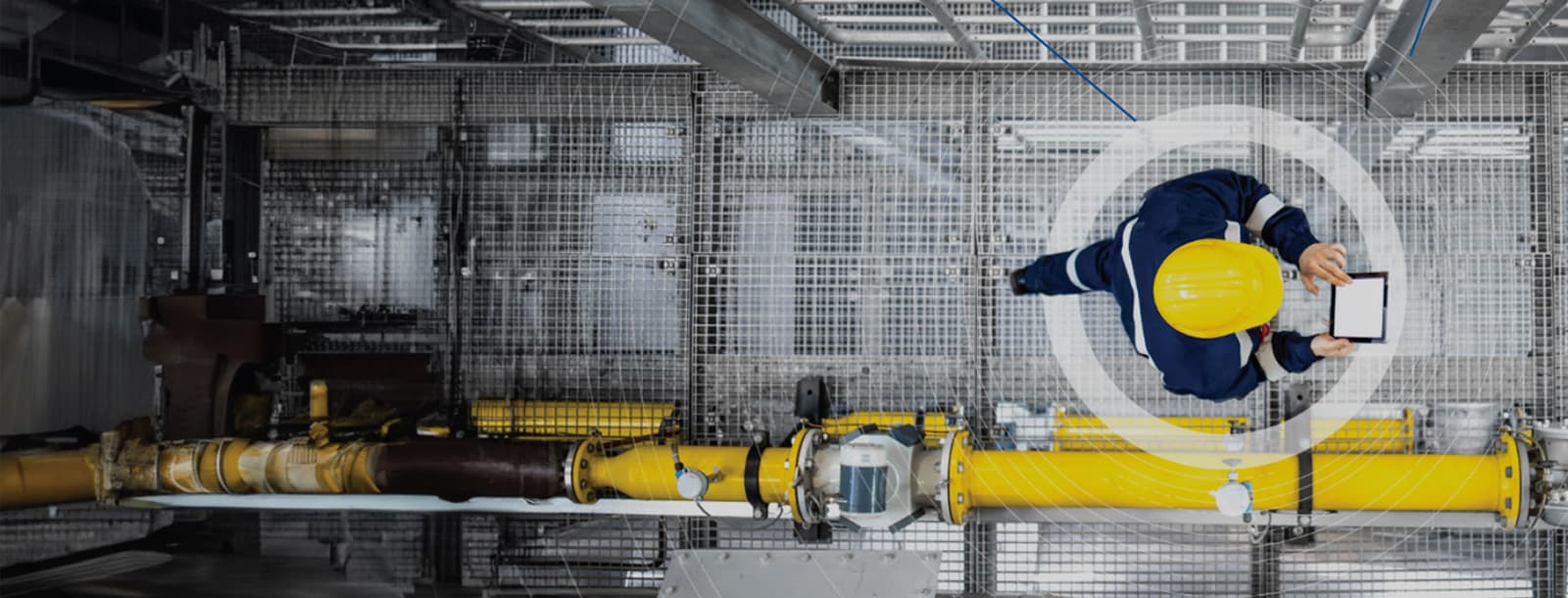
Запросить примеры отчетов
Напишите нам на markets@argusmedia.com или заполните форму, и мы
подберем для вас решение, которое будет соответствовать вашим потребностям.

